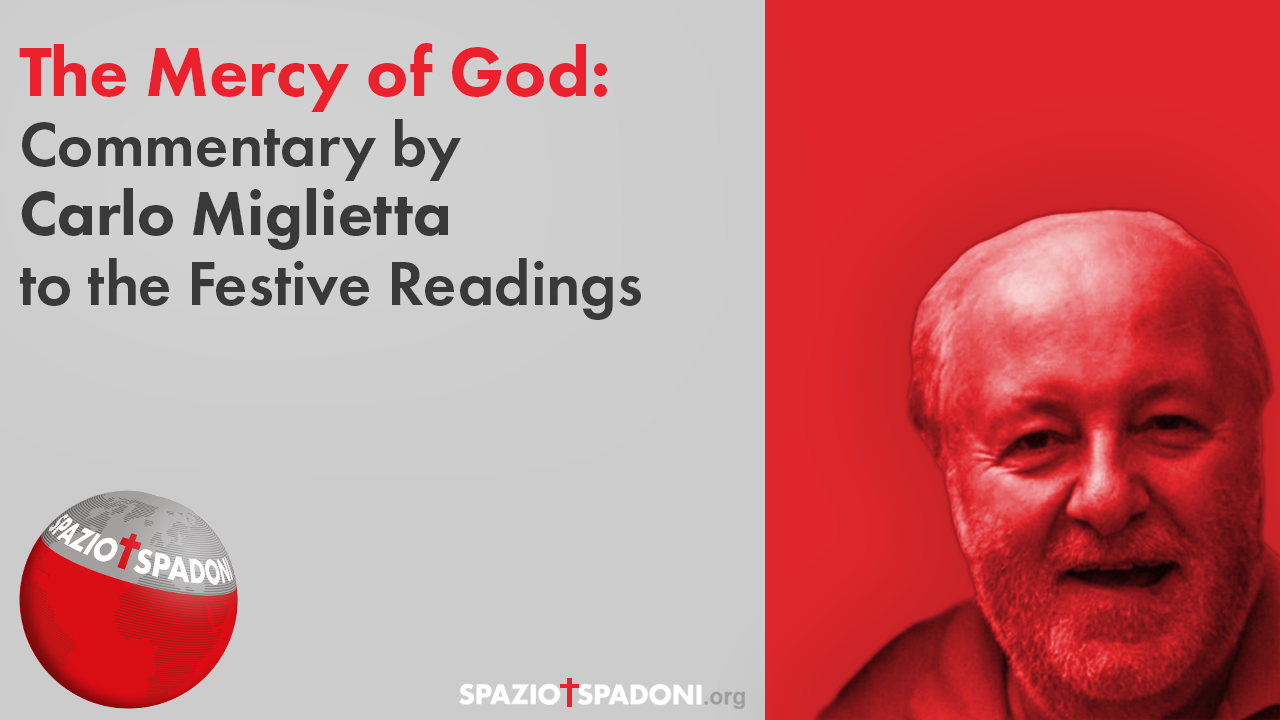
Sunday XIX Year B – Mormation, Lack Of Faith
Readings: 1 Kings 19:4-8; Eph 4:30-5:2; Jn 6:41-51
Murmuring (Jn 6:41,43,52) is a recurring sin in Exodus: it expresses unbelief, distrust, skepticism, and criticism of God’s plan of salvation, his voice and that of his prophets. It is our eternal fear of relying on him, of abandoning ourselves to his Providence; it is our sin, that is, of wanting to teach God what is good for us, constantly complaining if things do not go according to our expectations, our plans, our projects, our mentality.
Just as in the wilderness God understood the repeated murmurings of the Hebrews coming out of Egypt (Ex 16:2-3; 17:2; Nm 14:1-2.10-12…), and also that of Elijah, recounted in the First Readings (1 Kings 19:4-8), so now Jesus is heaping on those of his contemporaries, so similar to ours: how come God’s logic is in the sign of poverty, hiddenness, humiliation, last place, suffering, death? How can God be a carpenter (Mk. 6:3), whose origins we know (Jn. 6:42), and who has not even made regular studies (Jn. 7:15)?
God had responded to the first murmuring in the wilderness with manna, whose name “man hu” means, “what is it?” (Ex 16:15): a clear invitation to discover the origin of this gift. And here Jesus invites us to enter the mystery of his Person, to trace his divine origin. Faith is a gift from the Father (Jn 6:44; Mt 16:16-17): but to receive this grace we need to “listen to the Father and learn from him” (Jn 6:45), that is, to renounce our pride, our claim to self-justification, our desire to explain everything according to our own ideas, but humbly “let God teach us” (v. 45).
Jesus goes on the counterattack: just as the Jews inquired about his origin, so he questions them about their “fathers”: how is it that these, who had also eaten the manna, died? And this death was not only physical, but also deprivation of the Promised Land…. Why did that generation not come to salvation, despite the miraculous bread? Jesus becomes defiant: “Your fathers died because they did what you do now: they murmured!”: “All the Israelites murmured against Moses and against Aaron: ‘Oh! Had we died in the land of Egypt or had we died in this wilderness!'” (Nm 14:2). And God always hears the prayer of his own…: “I have heard the complaints of the Israelites against me…. For my life-says the Lord-I will do to you what I have heard from you: your corpses shall fall in this wilderness. None of you, …who have murmured against me, shall be able to enter the land where I have sworn to make you dwell” (Nm 14:26-30). Jesus is “the bread of life” (v. 45): whoever believes in him can indeed come to the goal, to the Promised Land, to “eternal life” (v. 47), to the blessedness of God. But we are to “eat” of him (v. 51), to unite closely with him, without murmuring, without continually rebelling, recalcitrating, posing problems and conditions, without always whining, sad and sullen like the pagans “who have no hope” (1 Thess 4:13). The Targum jerushalaim commented, “Woe to the people whose food is the bread of heaven and who murmur”: woe to a Church that, though possessing Christ-Eucharist, is always grumbling, discontented, intent on criticizing and complaining… The call to Christ is a vocation to hope, optimism, peace, happiness, cheerfulness, “Full Joy” (Jn. 15:11, 17:13): so “do not murmur, as some of our fathers murmured, and fell victims to the exterminator. All these things, however, happened to them as an example, and were written for our admonition, of us for whom the end of time has come” (1 Cor 10:10-11). Woe, the Second Reading tells us (Eph. 4:30-5:2), to “grieve the Holy Spirit of God, with whom you were marked for the day of redemption!”
